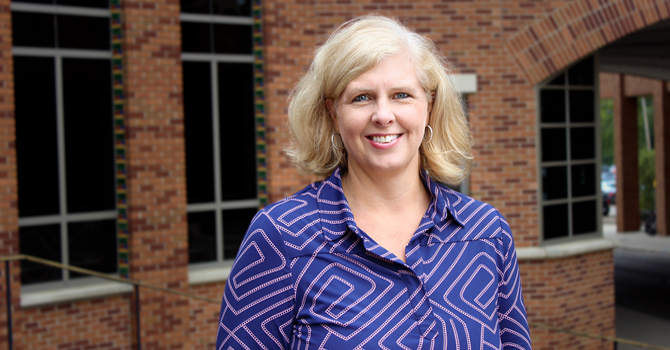Ask Lots of Questions: How to Lead Successfully in Health Care Finance at a Young Age without Formal Business Training

Sally Mason Boemer, MHSA ’93
Senior Vice President for Finance, Massachusetts General Hospital
After completing the Master of Health Services Administration at Michigan, I was able to do a fellowship at Massachusetts General Hospital. At some point in the second year of that fellowship, I began to realize how much I had learned in my finance rotation and how I could use those skills to help people and departments. Finance has evolved and today can be a lot more than just controlling expenditures and granting permission. Finance departments can collect and translate information for an organization's leaders that helps them make the best decisions.
I also learned during that fellowship how to ask questions and learn on the job. I asked as many questions as I needed to understand something myself, then I would work on translating that information for clinicians and managers so they could use it.
I try to bring others into a journey of understanding the data.
We have overwhelming amounts of data in finance, and our first inclination is often to share it all—either to generate excitement or to intimidate people. But the most helpful thing to the organization is to create data representations that are digestible. I try to bring others into a journey of understanding the data, drawing out conclusions, and then taking action that is informed by the data and by cross-team conversations.
This inclusive vision of finance—where the data serves every department in the organization—is how I got this job and have succeeded in this role. I really credit the fellowship with this. You have a license to ask all kinds of questions without pressure or expectations. And for me, I used that time to develop habits that have become very effective.
Micromanaging or Understanding?
My current management portfolio touches operations for a broad range of hospital departments and functions ranging from food service and security to information systems and compliance. Some of these areas are well outside my range of expertise. For me, senior leadership is about hiring seasoned, talented managers and trusting them. I know how difficult my managers' jobs are, and they know I am confident in their judgment and professional expertise. So I am a trusted advocate for them.
I ask people to show me the process, not just the results.
With that baseline of trust, my managers are comfortable articulating things in sometimes very basic language for me. I ask a lot of questions because I am a bottom-up learner, and they know that's my style. They know I'm not micromanaging—I am seeking to learn and understand. Asking lots of questions is my way of doing that. I ask people to show me the process, not just the results. People generally are proud of the work they do and are happy to share and teach. The more educated we all are, the more we can advocate for each other and support the work of other units.
Health Care Trends Good and Bad
First, the pace of change in our industry and so many others can be daunting. We cannot predict the pace of change with precision, but we can set a solid direction for ourselves based on all the data we have at our disposal. If the organization gets behind the curve, then we have to use blunt instruments to get back on track. So leaders have to know warning signs and how we can be proactive in adjusting to those signs while staying within a focused mission and set of goals.
A second concern I'll mention is related to mission and focus—the external pressure of society saying the cost of health care is too high. We need to address this concern, of course, but I worry that we focus on business problems and sometimes lose sight of the patients and the people who work in health care. When we focus on our employees—who are our greatest assets—then we can find creative ways to demonstrate the value of health care in every patient interaction rather than just crunching numbers and making business cases for the costs of health care.
What I perceive as a welcoming environment is not what someone else might find welcoming.
An encouraging trend today is the high value we're placing on diversity. Organizations should reflect the communities they serve. We need diverse staff, leadership, and formal inputs from patients so that we're not making assumptions about how people access health care. What I perceive as a welcoming environment is not what someone else might find welcoming. Without diverse views, we can't effectively build a building or design a patient intake process.
Balance in the Comfort Zone
When I talk today with students in the MHSA program, I ask them what they love to do. Self-awareness of your strengths and weaknesses is so important. We always want to have alignment of our passions and skills. But we also need to take on projects that push us outside of our comfort zones.
For example, I love complex problem solving and data-informed decision making and prefer proactive, cyclical work. Putting out fires in operations is not always fun for me, but you have to be ready for it. If you can find a balance between your different modes that works for you and your organization, you can be successful in your role of serving the organization and helping to provide great health care.
